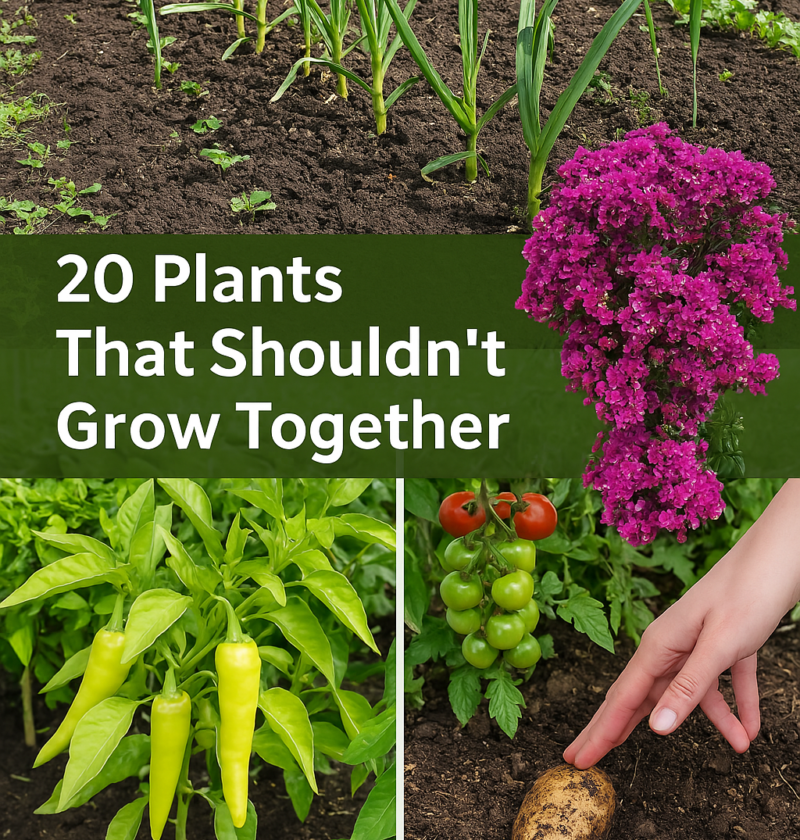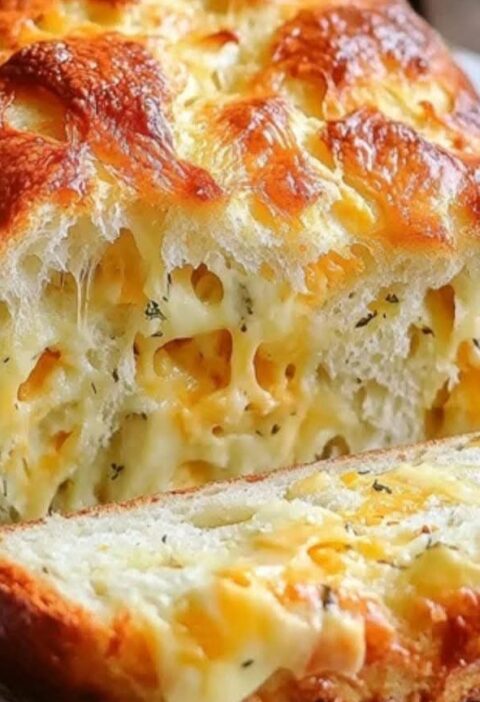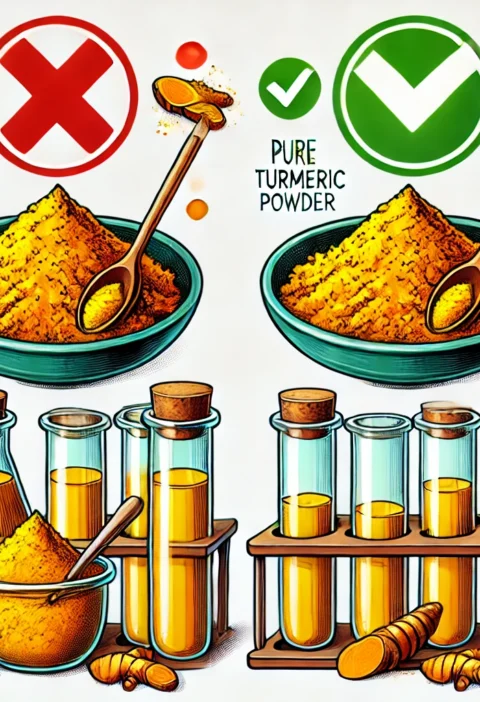Avoiding Plant Drama: 20 Incompatible Plants for a Thriving Garden 🌱🚫
Introduction: The Secret to a Harmonious Garden
A thriving garden isn’t just about sunlight, soil, and water — it’s also about plant relationships. Certain plants simply don’t get along, and planting them together can lead to poor growth, pest invasions, or nutrient depletion. Knowing which plants are incompatible helps create a harmonious, healthy, and productive garden.
In this comprehensive guide, we’ll walk you through 20 plant pairings to avoid and share pro tips on planning a flourishing garden without unnecessary drama!
Why Plants Become Incompatible
Understanding why plants clash can help you plan smarter. Here are the key reasons:
- Allelopathy: Some plants release chemicals that inhibit the growth of others.
- Nutrient Competition: Certain plants demand the same nutrients, creating shortages.
- Pest Attraction: Some plant pairings create a haven for pests.
- Shade Interference: Larger plants may block sunlight from smaller neighbors.
- Aggressive Growth: Some plants simply overpower others with rapid expansion.
Good planning prevents bad neighbors in your garden!
1. Tomato Pairings
Avoid Planting With: Corn, Potatoes, Fennel
- Why: Tomatoes and corn attract the same pest — the corn earworm. Potatoes increase the risk of blight, and fennel inhibits tomato growth.
Best Companions: Basil, carrots, and onions.
2. Potatoes
Avoid Planting With: Tomatoes, Cucumbers, Sunflowers
- Why: Potatoes share fungal diseases with tomatoes and compete for nutrients with cucumbers and sunflowers.
Best Companions: Beans, cabbage, and horseradish.
3. Carrots
Avoid Planting With: Dill, Parsnips, Celery
- Why: They share similar pests and can cross-contaminate diseases.
Best Companions: Lettuce, onions, and chives.
4. Cucumbers
Avoid Planting With: Aromatic Herbs, Potatoes, Melons
- Why: Herbs like sage can stunt cucumber growth, and potatoes/melons compete for space and nutrients.
Best Companions: Radishes, beans, and peas.
5. Beans
Avoid Planting With: Onions, Garlic, Fennel
- Why: The sulfur compounds in onions and garlic stunt bean growth.
Best Companions: Corn, cucumbers, and strawberries.
6. Peppers
Avoid Planting With: Fennel, Kale, Beans
- Why: Fennel is a poor companion for most plants; kale and beans may create competition for soil nutrients.
Best Companions: Basil, carrots, and onions.
7. Lettuce
Avoid Planting With: Parsley, Celery, Cabbage
- Why: These neighbors compete for root space and nutrients, stressing the lettuce.
Best Companions: Beets, carrots, and radishes.
8. Celery
Avoid Planting With: Corn, Carrots
- Why: Intense competition for nitrogen and root space.
Best Companions: Tomatoes, bush beans, and spinach.
9. Fennel
Avoid Planting With: Anything
- Why: Fennel releases compounds that inhibit most plants.
Best Companions: Plant alone or in containers.
10. Garlic
Avoid Planting With: Beans, Strawberries, Asparagus
- Why: Garlic may stunt these crops’ growth.
Best Companions: Tomatoes, peppers, and spinach.
11. Broccoli
Avoid Planting With: Strawberries, Tomatoes, Pole Beans
- Why: Compete heavily for calcium and attract pests.
Best Companions: Beets, celery, and onions.
12. Cabbage
Avoid Planting With: Strawberries, Tomatoes, Pole Beans
- Why: Similar to broccoli — heavy competition and pest attraction.
Best Companions: Dill, onions, and potatoes.
13. Zucchini
Avoid Planting With: Potatoes, Pumpkins, Cucumbers
- Why: All are prone to powdery mildew and take up too much space.
Best Companions: Corn, radishes, and marigolds.
14. Melons
Avoid Planting With: Cucumbers, Potatoes, Sage
- Why: Compete for nutrients and attract shared pests.
Best Companions: Sunflowers, radishes, and lettuce.
15. Onions
Avoid Planting With: Beans, Sage, Strawberries
- Why: Interfere with nitrogen-fixing bacteria vital for beans.
Best Companions: Carrots, beets, and lettuce.
16. Peas
Avoid Planting With: Onions, Garlic, Fennel
- Why: Strong scents and root competition hinder pea growth.
Best Companions: Carrots, radishes, and turnips.
17. Celery (Again)
Avoid Planting With: Corn, Carrots, Turnips
- Why: Competition for water and soil nutrients stresses celery.
Best Companions: Leeks, tomatoes, and spinach.
18. Strawberries
Avoid Planting With: Cabbage Family, Tomatoes
- Why: Compete for space and moisture, and invite fungal diseases.
Best Companions: Lettuce, spinach, and borage.
19. Dill
Avoid Planting With: Carrots, Tomatoes, Peppers
- Why: Dill cross-pollinates and competes heavily with these crops.
Best Companions: Cabbage family plants and cucumbers.
Planning a Garden for Success
Follow these best practices to avoid plant drama:
- Create Zones: Separate incompatible plants by bed or raised planter.
- Use Containers: Grow aggressive plants like mint or fennel in pots.
- Rotate Crops: Avoid planting the same incompatible pairs year after year.
- Use Companion Planting: Pair crops that protect and nurture each other.
Good plant neighbors mean fewer problems and more produce!
Frequently Asked Questions (FAQs)
Why does fennel inhibit other plants?
Fennel releases allelopathic chemicals that stunt the growth of surrounding plants.
Can I plant incompatible plants if they’re far apart?
Yes! Physical distance can minimize negative effects.
How close is too close for incompatible plants?
Ideally, separate incompatible plants by at least 2–4 feet or use separate beds.
Is companion planting really effective?
Yes! Studies and generations of gardeners have shown it improves yields and reduces pests naturally.
Can I fix mistakes after planting?
You can relocate seedlings early or improve soil health to reduce conflict if you notice signs of struggle.
Conclusion: Grow Happier, Healthier Gardens
Avoiding bad plant pairings is one of the smartest ways to create a beautiful, productive garden. By understanding which plants clash and planning accordingly, you’ll enjoy healthier plants, fewer pests, and bigger harvests.
Remember: A little planning now saves a lot of drama later!
Happy planting and growing!






